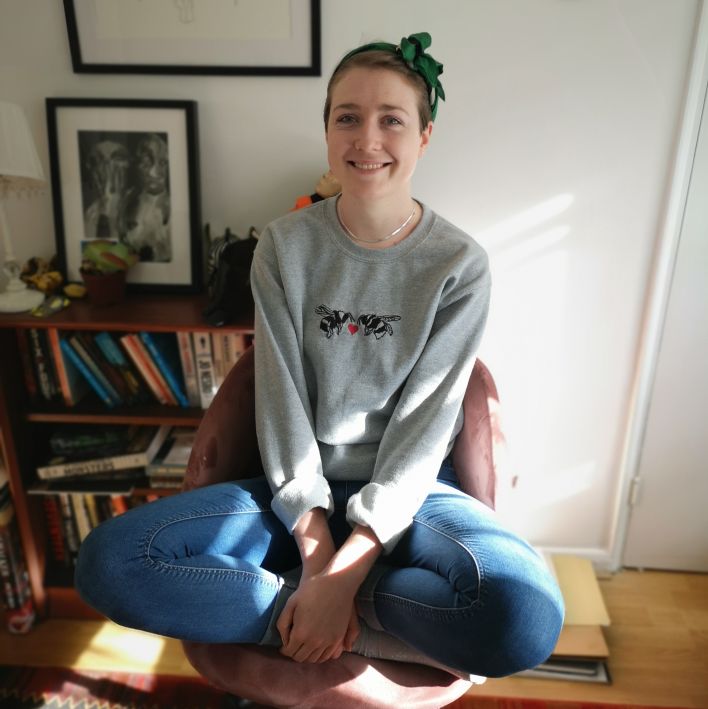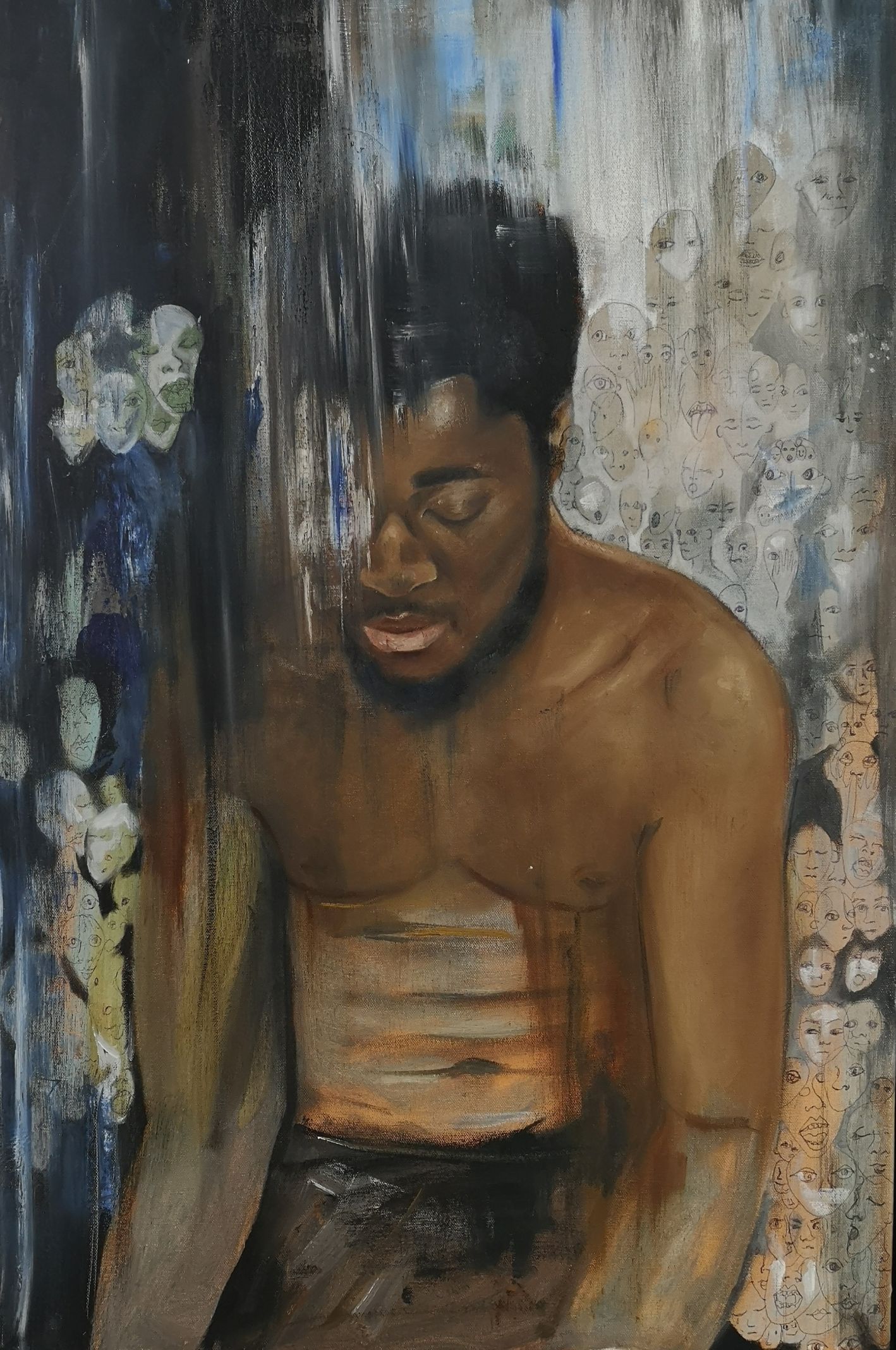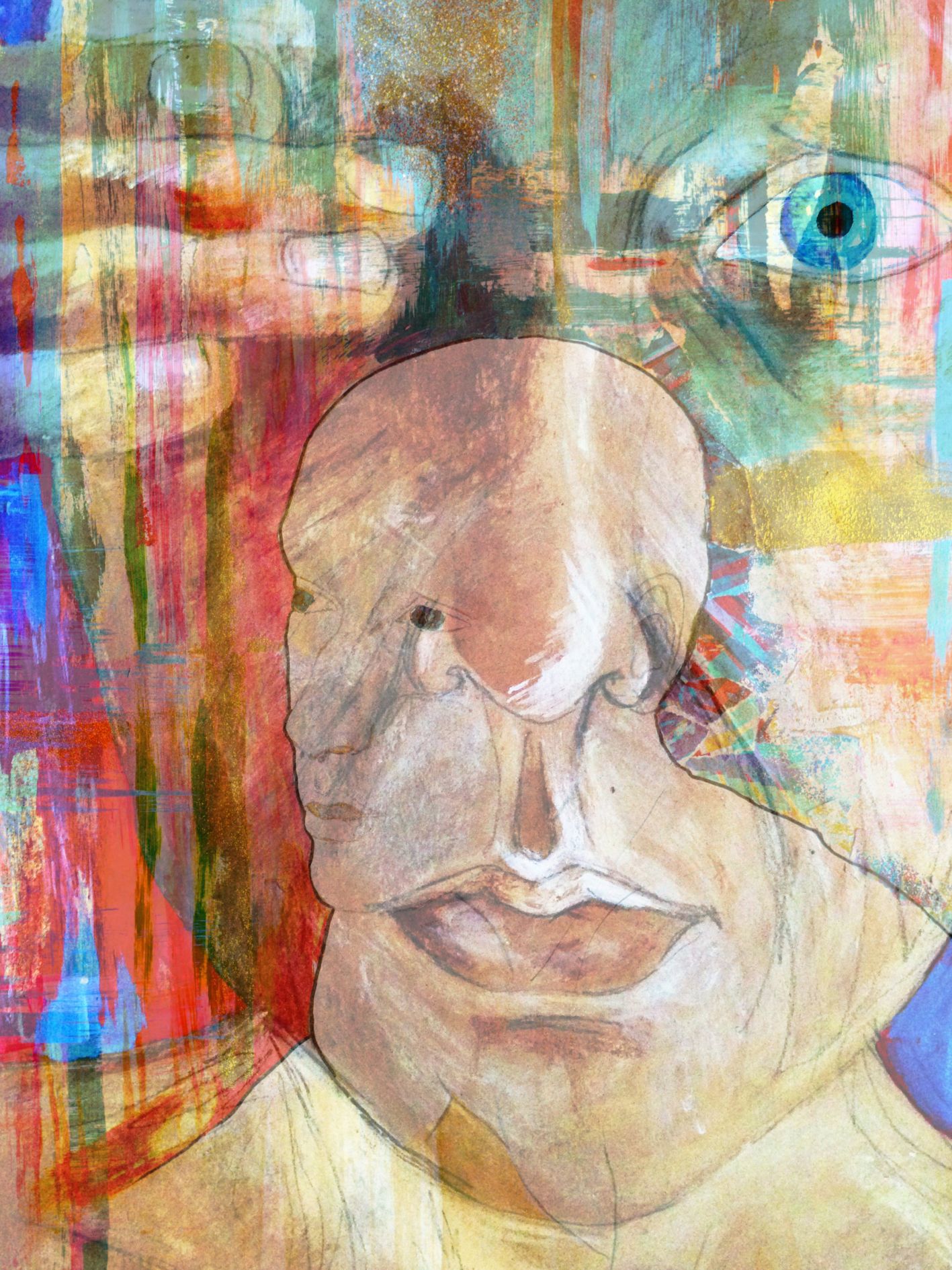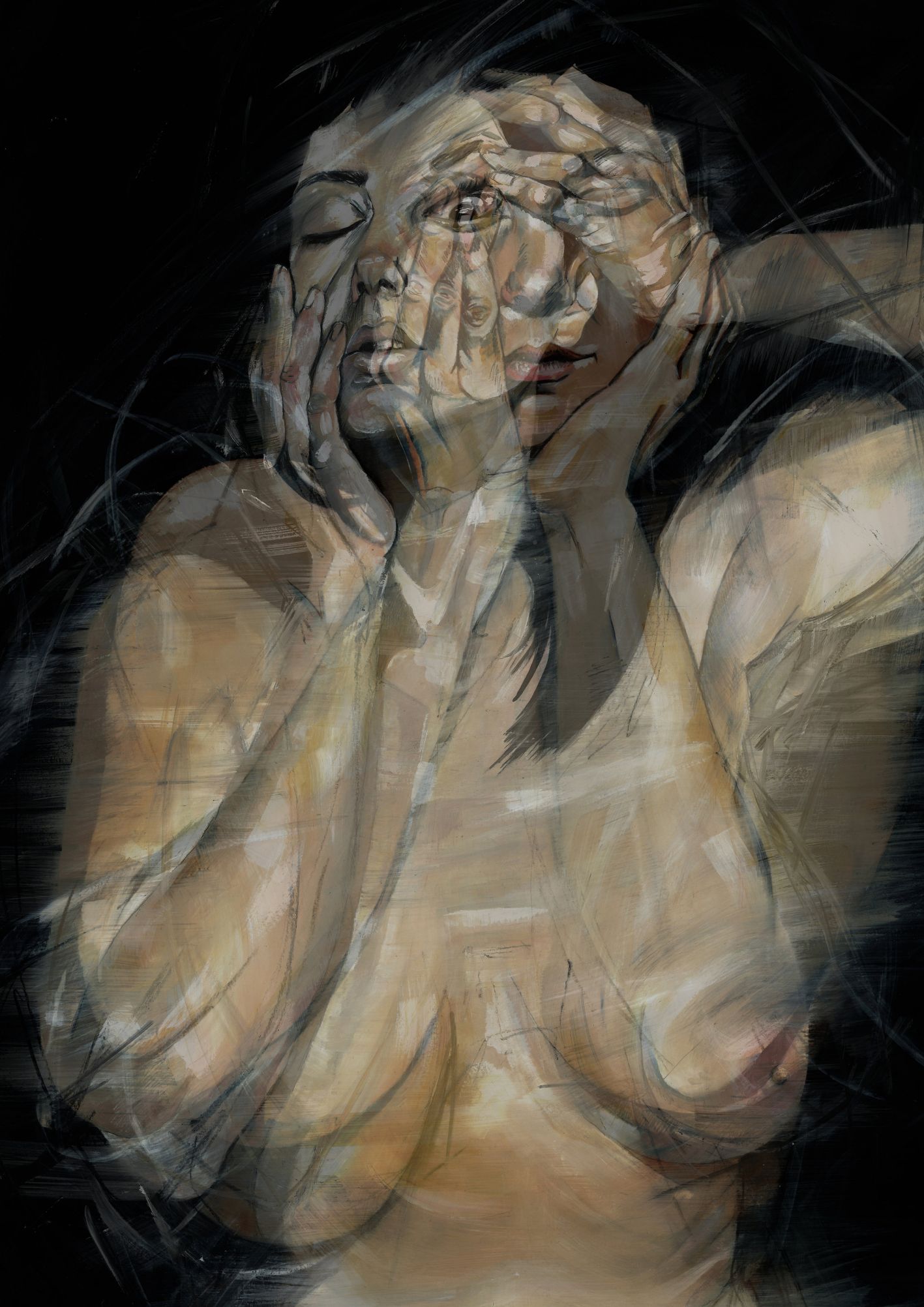Visualizing Pure O: An Interview with Martha Lamont
The artist bringing Obsessive Compulsive Disorder to life.
Written by Lauren O'Shaughnessy

Most people know OCD as the “cleanliness” disorder. They associate it with color coordinating notebooks or washing your hands ten times over. However, for many OCD sufferers, the condition has nothing to do with germs and organization.
There are two primary parts of OCD — obsessions and compulsions. Obsessions are repetitive thoughts or images that bombard a sufferer’s mind and trigger severe anxiety. Compulsions are a person’s response to these intrusive thoughts. For some, they’re visible (like handwashing or organizing). But for many, they are not.
This version of the condition - the one in which compulsions are confined to the mind - is called Pure O.
On any given day, a person with Pure O may experience hundreds, or even thousands, of debilitating intrusive thoughts. But because they lack visual symptoms, it’s common for Pure O sufferers to go decades, or entire lifetimes, without getting proper help.
London-based artist, Martha Lamont, lives with Pure O. After seeking treatment for the condition, she decided to give back to the community in the best way she knew how: by illustrating it. Her work takes the dark, taboo nature of Obsessive Compulsive Disorder, and brings it to life in relatable and intimate ways. We spoke with her about her OCD journey and the healing power of creativity.

Tell us about yourself — who are you, where do you live, what do you like?
I am artist living in Hackney. I like to cook, dance and paint. I’m a big lover of London and am lucky enough to have a very supportive boyfriend and great bunch of mates who I get to explore the city with.
Have you ever been diagnosed with a condition? How long did it take? What barriers did you face?
I went to various therapists in my early 20’s when my anxiety got bad who recognized what I was experiencing as OCD. I never got an official diagnosis, but that was enough. I realized through research what I was experiencing. However, due to my obsessions not being about stereotypical OCD themes like cleaning and checking, I faced the common barrier of society (and myself) not associating my symptoms with OCD for quite awhile. This brought on guilt, doubt and confusion.
Was there a specific low point that drove you to seek help or open up to a loved one?
Two years ago, I had a mental breakdown when very stressed. I was experiencing a high intensity of intrusive thoughts towards my partner which didn’t feel like my own or matched reality. It was incredibly debilitating and I couldn’t go to work without crying all day. I then sought help.

What stigma or cultural misconceptions have affected, or still affect, your recovery?
OCD is still an incredibly misunderstood condition. I work in a school where I hear people say “I’m so OCD” daily about things like their title being in the right place. It’s frustrating, but you can’t expect people to know unless they have been taught. That is why OCD awareness still has a long way to go.
Do you think art plays an important role in breaking down mental health stigma?
Definitely. Explaining how you feel in words is often very challenging. A picture can tell a story, while simultaneously conveying an emotion in a very powerful way (when done right). I’m not good with words, but I’ve often painted how I feel for my loved ones so they can understand a bit better.
What coping tools help you manage your condition?
Bringing it along for the ride is key in OCD recovery. Not letting the anxiety control my decisions. Self-care is crucial for me personally. It ensures I have a balanced life while working on acceptance of my fears. I often slip up when I try and juggle too much in life and become vulnerable to mental health.
In your opinion, what’s wrong with the current state of mental health care, both in your immediate community and on a broader scale?
Mental health is still not taken as seriously as it needs to be. Just because it’s invisible, doesn’t mean it’s not there. More awareness needs to happen, and stigmas need to be broken down so diagnoses can be recognized and sufferers can get the help and support they need.

What are you doing to combat those issues? What do others need to do to create change?
I try and do my bit in raising awareness for mental health through my art work. Art has been a big part of my recovery journey. I share it on Instagram, which was daunting at first but became pretty liberating. I’ve connected with many OCD sufferers online and if I had the time, I’d like to invest even more into it. Hopefully in the future, this will be possible financially!
Late last year I got sponsored by Robert Bray, founder of OCD Recovery UK, to do a mural raising awareness for intrusive thoughts, alongside putting on an exhibition titled ‘INTRUSIONS’ with Natalie Favaloro, where we shared our work about suffering. It was a great success and bought many sufferers together to feel less alone. I feel the conversation is being had and more people are speaking up. We need to continue to challenge people’s perspectives of what OCD is so those suffering in silence can get help.
What advice would you give someone reading this right now?
Reach out to a professional. It’s hard to do this on your own. If you can’t afford it, read the books suggested on OCD Recovery’s Instagram. They’re game changing. Also, if you feel comfortable doing so - share your story. The more we chat, the more awareness we raise!
Martha is an artist living in Hackney, London. She hopes to qualify as an art teacher next year and share her passion with young people. She’s recently focused her work around mental health. The content of her art is an attempt to illustrate, paint and create ways of storytelling her own and others struggles. You can keep up with her on her website here, or on Instagram at @marthalamontart.
About the author
Lauren is the editorial director and cofounder at the Made of Millions Foundation. She has been a part of the team since its launch in 2016. She has been open about her personal struggles with Generalized Anxiety Disorder and social phobia. You can follow her on Instagram at www.instagram.com/internet_lauren.
Support our work
We’re on a mission to change how the world perceives mental health.



















